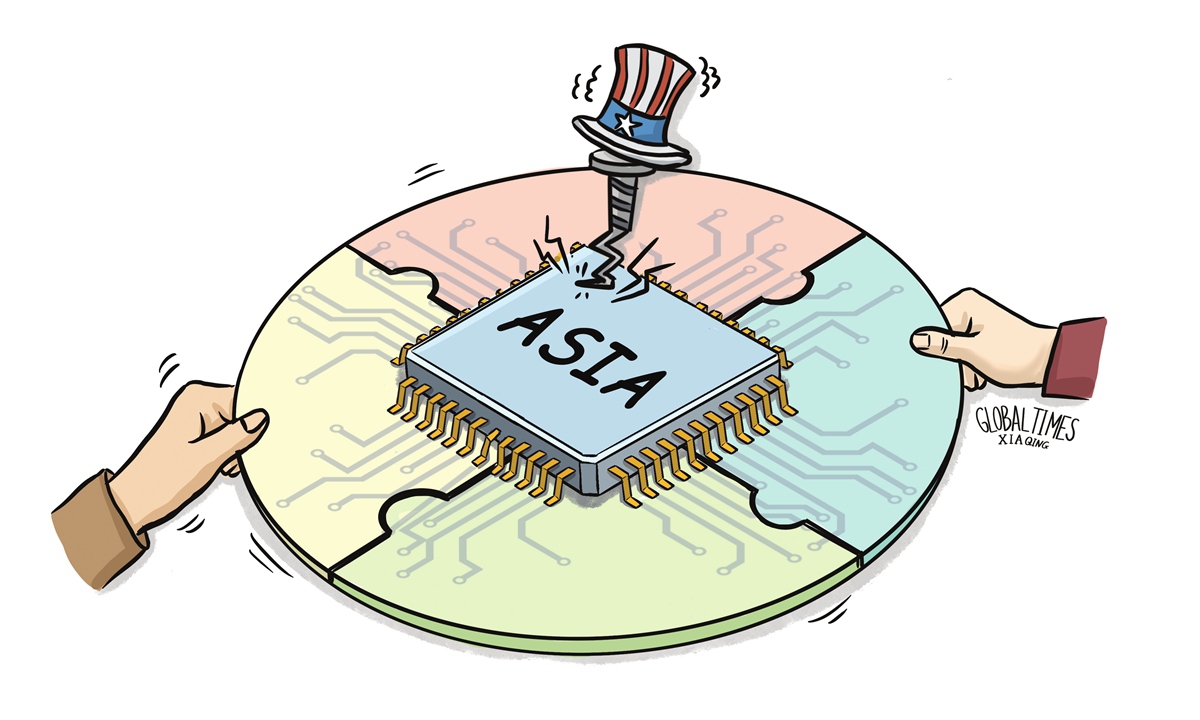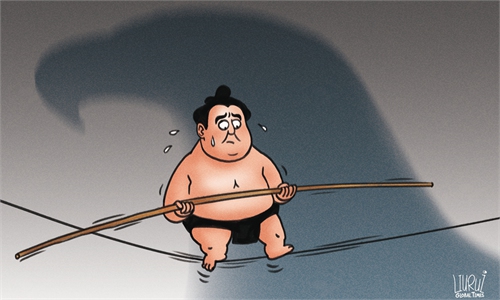
Illustration: Xia Qing/GT
Under pressure from the US to further tighten restrictions on advanced chipmaking tool exports to China, Japan's concerns about China's potential response appear to be mounting. The interconnected nature of the global supply chain means that any unilateral action could set off a chain reaction. It will be hard for Japan to avoid bearing the costs in today's international economic relations if it cooperates with the US in further suppressing China's semiconductor sector.Toyota Motor Corp privately told officials in Tokyo that if Japan further restricts sales and servicing of chipmaking equipment to Chinese firms, China could react to new semiconductor controls by cutting Japan's access to critical minerals that are essential for automotive production, Bloomberg reported on Monday, citing anonymous sources.
The news exposes the dilemma and challenges Japan is grappling with amid the competition between China and the US. Pressure from the US on Japan to restrict exports of advanced technology to China exemplifies hegemonic intervention in global trade, which goes against the principles of the market economy and destabilizes global supply chains.
If Japan succumbs to such detrimental political pressures, it will undoubtedly bring shocks to its own economy and the regional economy as well. Concerns about the potential consequences reflect some in Japan have recognized that continuously aligning with the US on the issue may ultimately result in detrimental consequences for Japan.
This hesitance reflects a growing concern among US allies that US-led efforts to exclude China from the semiconductor and industrial supply chains have reached a tipping point, prompting allies' hesitation to bear the costs of continuing down this path.
Every country has the right to take necessary measures to safeguard its economic security and interests. After the US and its allies have imposed restrictions on economic and trade cooperation with China, it is unrealistic to expect China to simply carry on with its economic and trade relations as if nothing has changed.
Japan should realize that it cannot succumb to US pressure on China without risking harm to its economic and trade ties with China. Pursuing a course of action detrimental to China could damage mutual trust and economic relations between the two countries and jeopardize Japan's standing in the global supply chain. To avoid such consequences, Japan must carefully consider its choices, seek ways to coordinate with the US, and strive to strike a balance between maintaining its relationship with the US and preserving its economic and trade partnerships with China.
The development of the global semiconductor sector relies on a vast international industrial chain, necessitating close cooperation among Japan, the US, South Korea, Europe and China for smooth operation.
China and Japan have cultivated a longstanding, mutually advantageous economic and trade partnership, with cooperation in the semiconductor field being a prime example of successful cooperation. By embracing open cooperation and mutual benefit, China and Japan can make the right choice in responding to the changing landscape of global industrial development and the challenges of de-globalization.
It's not possible to follow US restrictions on China on the one hand while seeking profits from the Chinese market and supply chain on the other. It is believed that Japanese companies can see this clearly.
It is hoped that the Japanese government will adopt a calm and cautious approach to make the right decisions in maintaining the stability of the global supply chain and industrial chain, taking into account the development interests of various sectors at home and abroad.



